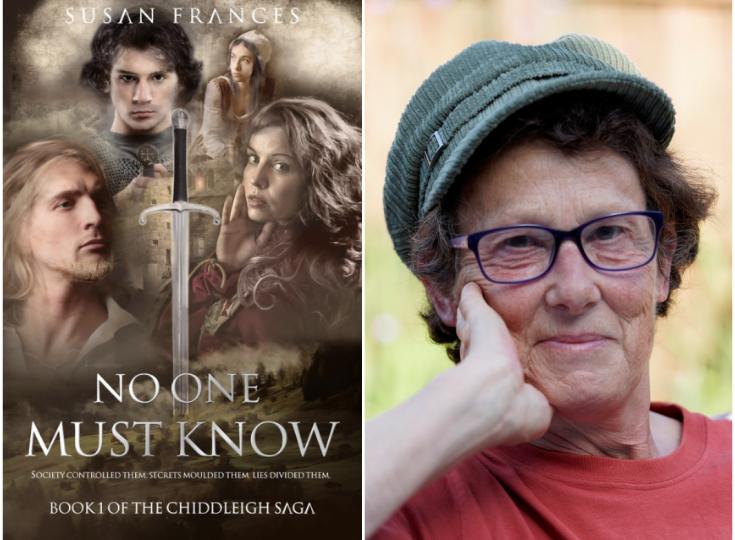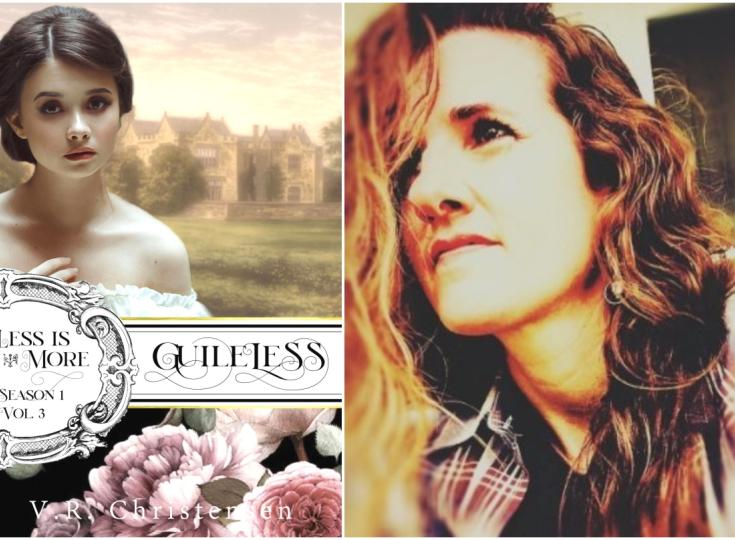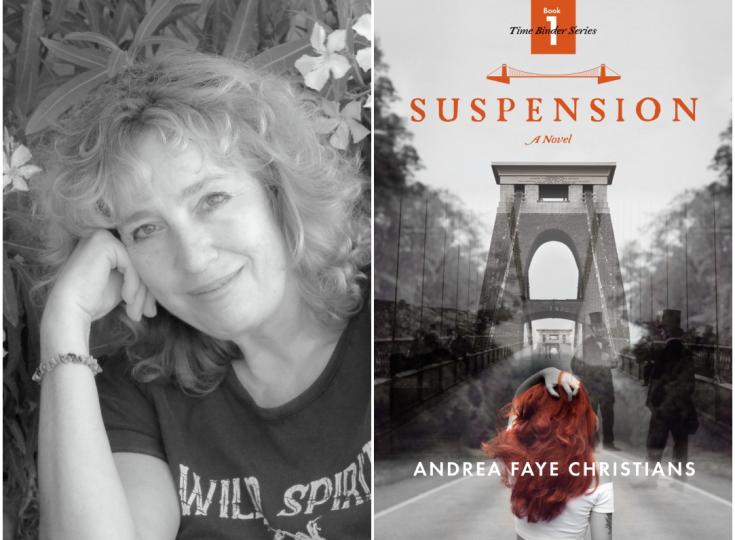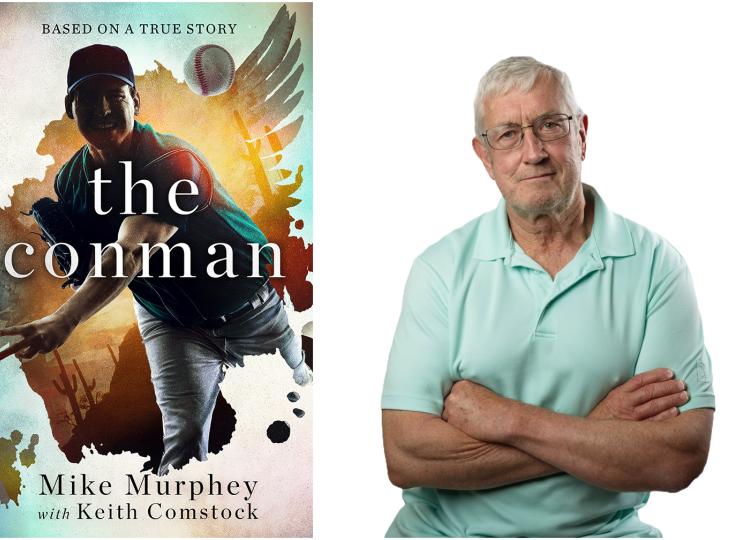Travis Heermann - A Body Slam of High-tech Mayhem and Social Justice
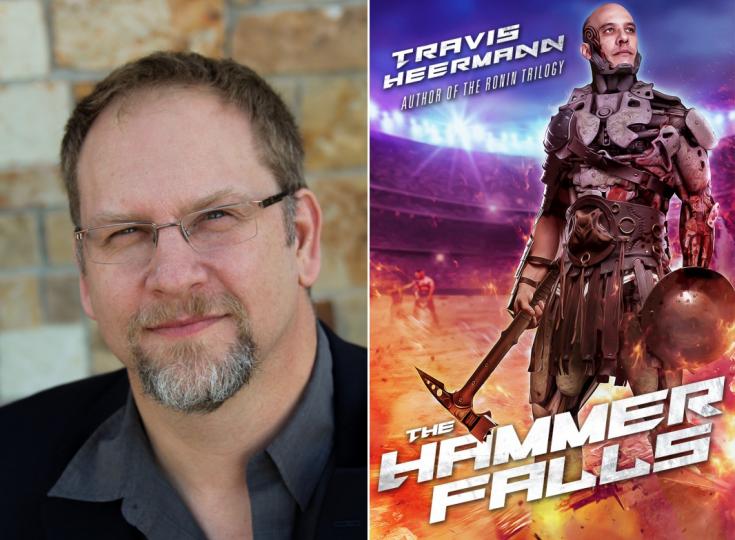
Freelance writer, novelist, award-winning screenwriter, editor, poker player, poet, biker, roustabout, Travis Heermann is a graduate of the Odyssey Writing Workshop, a member of the Authors Guild, an Active member of SFWA and the HWA, and the author of The Ronin Trilogy, Rogues of the Black Fury, and co-author of Death Wind. As our Author of the Day, Heermann tells us about his book, The Hammer Falls.
Please give us a short introduction to what The Hammer Falls is about.
The Hammer Falls is about a pit fighter twenty years past his prime, Horace "The Hammer" Harkness. At it's core, the story is about the redemptive quality of love, at least for me, and what it means for a guy whose entire life has built him into one thing. He's made for one thing. What does it mean when he can't be that thing anymore? It's also has some very sharp social commentary on health care versus capitalism.
What inspired you to write about a gene-modified pit fighter?
The worldbuilding that included regeneration technology, the story's science fictional novum, came from an in-class writing exercise at the Odyssey Writing Workshop. I had also recently seen the Darren Aronofsky/Mickey Rourke film The Wrestler. Mainly out of those two things, the original short story was born, which I wrote while I was at Odyssey. I subsequently sold that story to an online SF zine, but I never felt like the story was finished. The Hammer kicked around in my brain for several years, grumbling and demanding to be written, before I finally took the plunge.
Tell us more about Horace. What makes him tick?
That's a great question. He's a guy who operates almost totally on instinct and intuition, like a medieval warrior born in the wrong century. He's not stupid by any means, but he's not a thinking man. What drives him for most of his life is the roar of the crowd, but as the story develops, he finds himself driven by something else: love and friendship, things he's only experienced tenuously before.
Why did you bring the Russian mob into the mix?
Given our current political situation the U.S., a Russian-mob-fueled oligarchy seems like a prophetic choice on my part. Present day Russia is basically a mafia state/kleptocracy with Vladimir Putin as the godfather. When I was writing the story, I knew that Horace would run afoul of some mobsters (I was aiming for a kind of noir tone.) and the Italian mafia has been on the decline over the last couple of decades, so I discounted that angle quickly in favor of other criminal organizations. I don't remember exactly why at the time I chose the Russian mob over say, Chinese triads or the Japanese Yakuza, but my broader research about the present day Russian mafiya when I was writing the book was eye-opening and compelling. I found so much great, real-world fodder to enrich the story.
You enjoy martial arts - how has this influenced your writing?
As a martial artist, I know who to build a realistic fight scene. I enjoy martial arts not only for its own sake but also as a tool for writing good action fiction. Having real, sensory perceptions of using weapons, moving one's body, taking a punch, knowing what is possible for a body to do, etc. is critical for putting the reader into a high-action, dangerous moment. One of the things that fascinates me is the physiology and biomechanics of it, as well as the mental effects and aftereffects.
Besides writing, what other secret skills do you have?
I am a darn fine cook. My wife often jokes that I can make a feast out of things she barely sees as viable food. Also, I grew up on a farm, so that by its very nature gives tons of hand-on skills. Put it this way: you want me on your zombie apocalypse team.
You have written for several game properties, including EVE Online, BattleTech and Legend of Five Rings - in which way is writing a novel different?
All of those properties were very different projects. For EVE, I was writing in-game missions. For L5R, I was writing supplemental material like sub-classes, monsters, spells, basically mechanics stuff, along with two mini-adventures. For the Firefly RPG, I got to flesh out one of the planets from the TV series, which was a total thrill. For BattleTech, I've written game-related fiction. Just last week, one of those stories "Swords of Light and Darkness", was nominated for a Scribe Award by the International Association of Media Tie-in Writers. Since it's my first award nomination, that feels pretty good.
As for how this differs from a novel, they were all very different kinds of writing, almost like technical writing in that there were very strict parameters and limitations. With that kind of project, you get to play in somebody else's sandbox. You have to abide by the boundaries of that property, its conventions, characters, genre, etc. If you're writing missions and adventures, you're telling stories without protagonists. The players have to fill that role. When you're writing your own novel, all characters and worldbuilding obviously come from you.
How do you think you’ve evolved creatively as a writer?
I've gone from more of a pantser to more of a plotter. Having an outline written, knowing scene by scene where the story is going, absolutely speeds up the writing process for me. When I sit down, I just have to write the next scenes, which are already laid out. I think this is true of most pros. We all need to be able to produce material faster to meet deadlines.
What do you enjoy most about your work?
The freedom to be my own boss. It's usually scary as hell, but I kind of think I'm spoiled forever for working for any kind of 9-to-5 supervisor ever again.
What is the best writing advice you’ve received?
Probably "Dare to suck." In other words, get it down, get it done, even if you're sure it sucks. Get it down, fix it later. The funny thing about writers is that we are the worst possible judges of our own work. "Dare to suck" is a way of taking the pressure off, of turning the volume down the internal editor forever looking over one's creative shoulder.
Which of your characters has been the most challenging to write for?
In The Hammer Falls, the character of Tina, who ends up being Horace's sidekick, brings a young, staunchly feminine, feminist point to view to counterbalance Horace's aging dinosaur-ness. The interplay between them I still love reading (I was laughing out loud during the editing process), but knowing what makes her tick, deep down, was a real challenge, not having ever been a twenty-something female. For that I kind of created an amalgam from several women I know, and also relied on several beta-readers to point out what I might have gotten wrong.
Do you consider yourself a disciplined writer? Do you have a schedule that you stick to, or is it more in the moment?
From the outside, it may appear I am quite disciplined, especially when people say, "Wow, you're so prolific!" But the truth is that most of the time I'm just flailing. I do have maybe half a schedule, structured around family commitments, with the rest of the time an unpredictable assortment of errands and appointments.
What are you working on right now?
I have several projects ongoing at the moment. I'm producing a comic adaptation of the Ronin Trilogy, with Issue #1 slated for June release, kind of alongside the Hammer. Lots of busy work there. Creatively, I have two ghostwriting projects, one coming to a close and one launching soon. Along with all of that, I'm trying to finish a teen werewolf novel, Dawn of the Deadly Fang, under my pen name T. James Logan. A YA magical realism novel will be coming out under that pen name later this year. Plus there's the audio book edition of The Hammer Falls which will be starting production soon.
Where can our readers discover more of your work or interact with you?
My website is the place to discover my work, www.travisheermann.com. But if you want to connect with me on social media, I'm an easy guy to find on Facebook, Twitter, Instagram, and Goodreads. You can also follow me on Bookbub.
